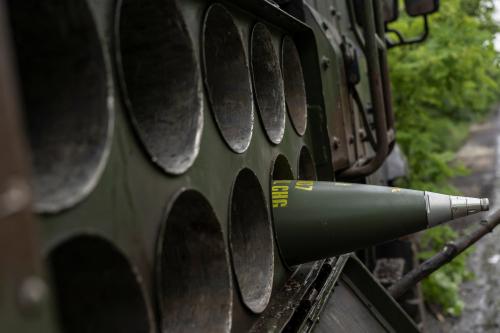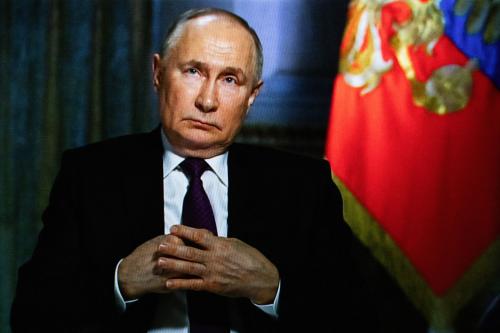It was always clear that nearly any agreement between Iran and the P5+1 would occasion fierce resistance in predictable quarters. After more than ten years, any status quo, even one that perennially threatens war, can become more comfortable (and profitable) than the unknown. So a rather unwieldy if predictable coalition has arisen to support the continuation a U.S.-Iranian confrontation threatened by the recent efforts to step back from the endless brink. It was already weird to see Saudi Arabia, Israel, American neo-conservatives, and a sizeable slice of the U.S. Congress all join together in opposition to a deal. The apparent addition this weekend of the French — the original “cheese-eating surrender monkeys” — to the coalition seems to complete the perfect odd bedfellow tableau.
This development has occasioned all sorts of bizarre reversals. The Wall Street Journal wrote an editorial entitled “Vive La France” and Sen. John McCain is praising a country that in 2003 he said should never have been given a Security Council seat. Meanwhile, Iranians find they need to move beyond their usual Anglo-Saxon conspiracy theories and are advocating symbolic boycotts on French fries and baguettes. Critics of the Obama administration see yet more evidence that even traditional allies are losing faith in American leadership. American proponents of the negotiations speculate that the French simply want to get closer to Israel or to sell arms to Saudi Arabia — charges that are usually hurled at the United States by irate European peaceniks.
This is fun to watch, but there is less to the French challenge than gleeful critics of the P5+1 process are claiming.
In the first instance, it is not new. France has long been the most hardline member of the P5+1. Since the collapse of the 2003-2005 European (British, French, and German) agreement with Iran to freeze enrichment and the revelations that Iran used that period to secretly expand its nuclear program, the powerful French foreign affairs bureaucracy has been extremely distrustful of Iran. Particularly since 2007 when the temperamentally aggressive Nicolas Sarkozy took office as President (and two years before Obama did), the French have consistently warned of potential Iranian perfidy and worried about American naiveté. They, for example, fiercely criticized the 2007 U.S. National Intelligence Estimate on Iran that declared that Iran was not seeking a nuclear weapon. The new French president, Francois Hollande, has continued this policy as he has sought to establish his own bona fides in promoting a strong French foreign policy.
In the second instance, the specific French challenge to the P5+1 process in Geneva was a much narrower one than John McCain and The Wall Street Journal would likely prefer. The French do not oppose any deal. But the French are concerned that the increasingly bilateral nature of the process will both exclude French views and result in a deal that might replicate their mistakes in the 2003-5 period. The fact that European Union High Representative for Foreign Affairs Catherine Ashton often chairs the talks is seen by the Americans as allowing effective representation of European (and therefore French) views. But the French don’t view Ashton as their representative and have complained about a lack of consultation in the process. The increasing number of bilateral meetings between the U.S. and Iran, as well as Secretary of State John Kerry’s decision to suddenly fly to Geneva probably contributed to these complaints.
The French are, however, well aware that P5+1 unity is essential both for obtaining a good deal and for maintaining effective sanctions if a deal falls through. Both the U.S. and French officials have emphasized that the real obstacle at Geneva was the need for Iranian side to seek guidance from Tehran. Moving forward, it will not be very difficult to bridge the gaps between the American and French sides. They both badly want to resolve this confrontation in a way that sustainably prevents Iranian development of nuclear weapon.
But there are lessons here. The United States relies on the P5+1 process to create legitimacy in this negotiation and all the participants recognize how important that makes them. Of course, managing a seven-sided negotiation is never easy. Particularly given the time pressure in this negotiation, it is natural to seek to narrow its participation, in part just to prevent damaging leaks. Nonetheless, the Obama administration will need to find ways not to surprise or anger the other P5+1 members if it wishes to avoid future upsets. France, for one, sees a deal as possible, but will not simply defer to any American deal without sufficient input into the process. That was the principal message they sent at Geneva.



Commentary
Lauded – And Blamed – For Diplomacy’s Failure, France Takes Center Stage In Iran Talks
November 11, 2013